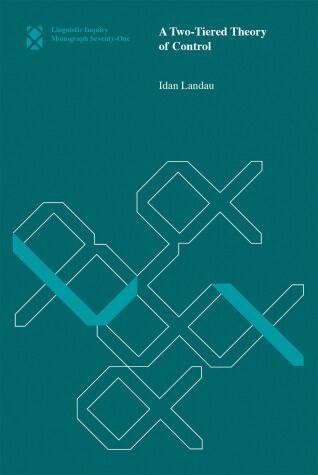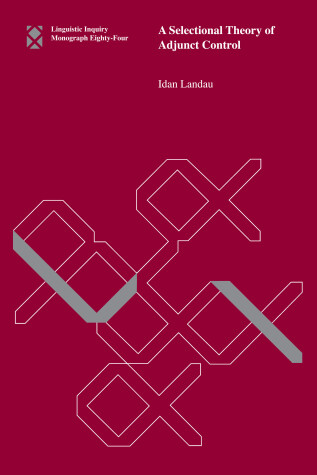Linguistic Inquiry Monographs
1 primary work • 2 total works
Book 71
This book revives and reinterprets a persistent intuition running through much of the classical work: that the unitary appearance of Obligatory Control into complements conceals an underlying duality of structure and mechanism. Idan Landau argues that control complements divide into two types: In attitude contexts, control is established by logophoric anchoring, while non-attitude contexts it boils down to predication. The distinction is also syntactically represented: Logophoric complements are constructed as a second tier above predicative complements.
The theory derives the obligatory de se reading of PRO as a special kind of de re attitude without ascribing any inherent feature to PRO. At the same time, it provides a principled explanation, based on feature transmission, for the agreement properties of PRO, which are stipulated on competing semantic accounts. Finally, it derives a striking universal asymmetry: the fact that agreement on the embedded verb blocks control in attitude contexts but not in non-attitude contexts.
This book is unique in being firmly grounded in both the formal semantic and the syntactic studies of control, offering an integrated view that will appeal to scholars in both areas. By bringing to bear current sophisticated grammatical analyses, it offers new insights into the classical problems of control theory.
Control in adjuncts involves a complex interaction of syntax, semantics, and pragmatics, which so far has resisted systematic analysis. In this book, Idan Landau offers the first comprehensive account of adjunct control. Extending the framework developed in his earlier book, A Two-Tiered Theory of Control, Landau analyzes ten different types of adjuncts and shows that they fall into two categories: those displaying strict obligatory control (OC) and those alternating between OC and nonobligatory control (NOC). He explains how and why adjuncts shift between OC and NOC, unifying their syntactic, semantic, and pragmatic properties.
Landau shows that the split between the two types of adjuncts reflects a fundamental distinction in the semantic type of the adjunct: property (OC) or proposition (NOC), a distinction independently detectable by the adjunct's tolerance to a lexical subject. After presenting a fully compositional account of controlled adjuncts, Landau tests and confirms the specific configurational predictions for each type of adjunct. He describes the interplay between OC and NOC in terms of general principles of competition--both within the grammar and outside of it, in the pragmatics and in the processing module--shedding new light on classical puzzles in the acquisition of adjunct control by children. Along the way, he addresses a range of empirical phenomena, including implicit arguments, event control, logophoricity, and topicality.

